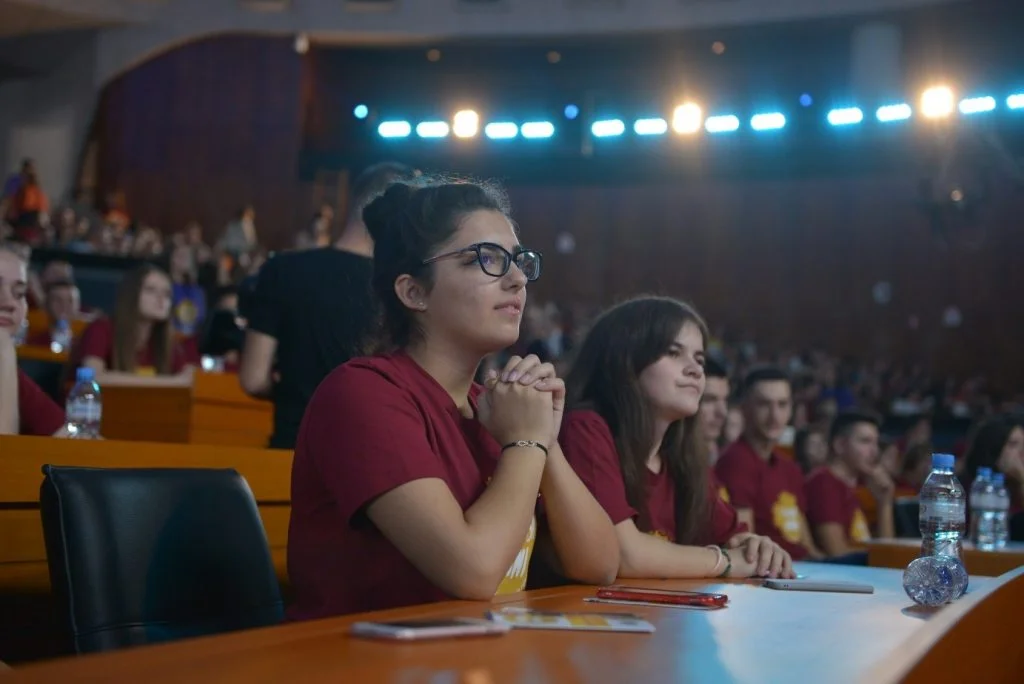Participation in decision-making is a broad term that includes active involvement in political, economic, and social life. Young people have the power to bring revolutionary changes, build the future, and contribute to the development of society. Youth initiatives are an important part of the direct involvement and civic engagement of young people in the community. Youth participation in politics is seen both as a public and a private matter. It is a public matter, as it concerns the approach taken by the government as a whole, public institutions, political parties, and society to young people, and the space left to act, participate, or be represented. On the other hand, it is a private matter, as the lessons and experiences learnt by young people guide their civic or political engagement in social initiatives and enables the exploration of opportunities that represent the interests of young people in politics or decision-making.
Some of the factors that affect the level and quality of young people’s participation in decision making are:
- Young people make up ¼ of the population in Albania.
- The need to bring a new approach to politics, a more contemporary perspective compared to the closed cycle of traditional politics.
- The need for society to activate a new level of policy based on individual merit and values.
- Addressing the culture of political disengagement, starting with the active participation of young people in elections.
- Making changes in the social environment, which is polarized.
There is also a link between the political beliefs of young people and those of the family linked to the tendency of getting involved in political parties for the sake of finding employment. However, in comparison to the previous years, a significant increase is noted in the number of young people involved in politics. Moreover, political involvement is considered by many, as the only opportunity to find employment or build a more promising future.
Young people in Albania tend to be more involved in initiatives and activities of a political nature rather than get involved in community or civil society causes. Despite the different forms of political contribution and the goals that everyone seeks to achieve through political involvement, the inclusion of the youth generation transmits the necessity for policy improvements. Additionally, the engagement of young people in electoral meetings “obligates” politicians to turn their eyes to young people and their demands.
On the other hand, the involvement of young people in political parties might increase or decrease their political engagement, depending on their experience. One of the reasons for the discouragement of young people’s political engagement is the unfriendly environment and the power dynamics of the political parties which create a negative impression of the impact that politics have on the development of society. Moreover, the violation of values and principles for the sake of personal gain, the transition from one political force to another, inorganic conception of party coalitions, and non-reflection of political maturity break the trust of young people in politics. The harsh political discourse, instead of promoting cooperation and tolerance, cultivates a sense of discord and hatred.
Based on some of the findings from studies with young people we can mention:
- Geographical location and the place of origin are among the 2 main factors of discrimination faced by young people;
- Only 16% of young people are involved in volunteer activities;
- Young people in Albania are not very interested in the political development of the country, as they believe that their vote or participation in the elections does not have any impact on the way the country will be governed.
A nation is democratic to the extent that its citizens are actively involved at the community level. The representation of young people in political life and especially in local government structures remain at very low levels. Their representation is done not according to the laws or decisions in force, but many times according to the personal knowledge of political party leaders. The active participation of young people in the electoral process and especially of first-time voters has been declining. Although there is a large number of youth organizations in the country, a significant number of them lack coordination, leadership, and project management.
Moreover, another study with young people, resulted that there is a great deal of distrust about politics. Only 10% are interested in politics and believe, while on the other hand, less than 10% believe that their vote matters. Albanian youth are very active in electoral processes; they participate in campaigns and 93% vote regularly, but only 3% feel represented in politics. Rina does not believe in political parties, but they join them only to find a job, and this is pure pragmatism. This is one of the main problems that young people face. They are confident in their abilities, but at the same time, they need sustainable employment opportunities to build their future in Albania.
“Even though you are not interested in politics, this does not mean that politics is not interested in you.”
Pericles








